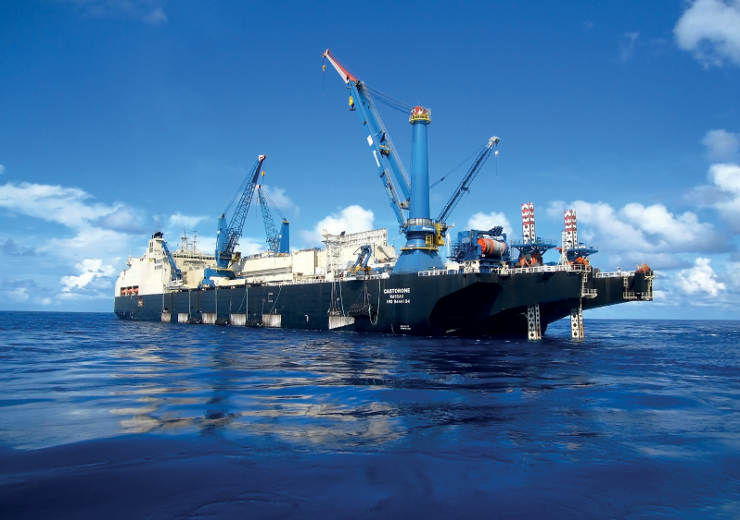The first contract from Total Energies pertains to the LAPA SW development project in in the Santos Basin in Brazil, while the second contract from Equinor is for the Irpa pipeline project in the deep waters of the Norwegian Sea

Saipem will use its Castorone vessel for the Irpa pipeline project. (Credit: SAIPEM SpA)
Italian oilfield services company Saipem has bagged two offshore contracts with a combined worth of around $900m from Total Energies and Equinor.
The first contract from Total Energies pertains to the LAPA Southwest (LAPA SW) development project in Brazil, which will be executed by Saipem in partnership with Aker Solutions do Brasil.
LAPA SW is a deepwater oil field in the Santos Basin. The field is located 270km off the coast of São Paulo.
According to Saipem, the scope of work covers the engineering, procurement, construction, and installation (EPCI) of subsea umbilicals, risers, flowlines (SURF) and a subsea production system (SPS).
The LAPA SW development project is the first integrated SURF and SPS project to have been awarded by TotalEnergies, said the Italian contractor.
In order to execute the project, Saipem plans to maximise the local content by utilising its Guarujá Centro de Tecnologia e Construção Offshore (CTCO) yard for logistics activities and Quad Joints Fabrication and some other manufacturing works.
Recently, TotalEnergies took the final investment decision on the $1bn Lapa SW project in which it is partnered by Shell and Repsol Sinopec.
The project will be developed by drilling three wells, which will be connected to the existing Lapa floating production storage and offloading (FPSO) vessel located 12km away at the North-East part of the producing Lapa field.
The second contract won by Saipem is for the Irpa pipeline project in the deep waters of the Norwegian Sea.
The project involves the laying of an 80km long swagged pipe-in-pipe pipeline to link the subsea production template of the Irpa gas field to the existing Aasta Hansteen platform.
The pipeline design will have a combination of insulation and vacuum between the inner and outer pipes along with the injection of monoethyleneglycol (MEG). This approach is expected to help reduce the formation of hydrates in the multi-phase well stream.
Saipem said that the offshore operations are intended to be carried out in 2025 and will be undertaken by its flagship pipelaying vessel Castorone.
